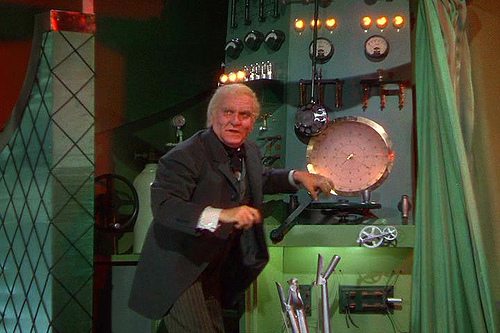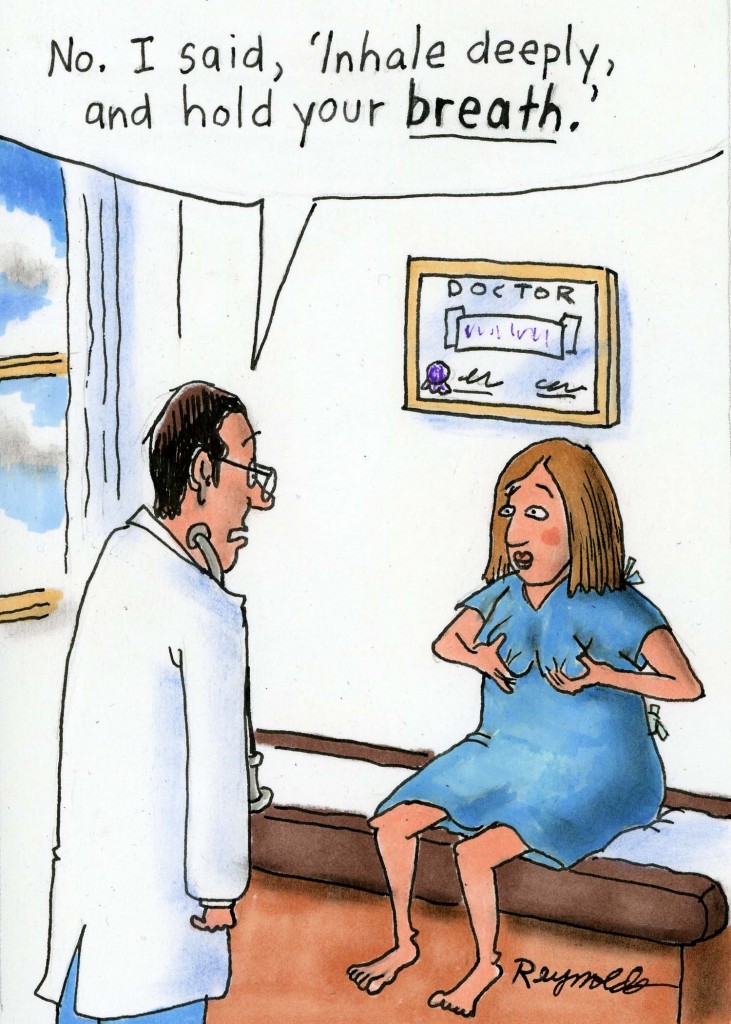Behind the curtain: sexual health and the culture of trust
[Frank Morgan as Oscar Diggs (aka The Wizard). All rights, MGM 1939.]
Sexual health in women. It’s truly a double-edged, damn if you do, damn if you don’t topic, wrought with landmines and a path paved with…profit. Especially female sexual dysfunction.
Female sexual dysfunction describes an amalgam of symptoms and issues around women and their sexual desire or lack thereof that include: a chronic lack of interest in sexual activity, avoidance of sexual contact, the inability to maintain excitement, difficulty in reaching orgasm after arousal, pain during intercourse, involuntary spasms that may prevent sexual penetration and genital pain following foreplay. A woman doesn’t have to experience all of them to be labeled as having female sexual dysfunction, but she must have at least one and it must cause distress.
Sounds fairly complicated, doesn’t it?
The literature and reams of data have shown that sexual function and desire in women rely on multitude of factors such as context, experience, personal attitudes, emotional closeness, wellbeing, social support and even a sense of purpose. And with the intersection and interaction of these factors, one would imagine it would take a miracle drug to combat more than one of these issues effectively and efficiently. That may be one reason why the FDA turned down the application for flibanserin a few years ago.
The back story on this ‘Female Viagra’ is that it is a antidepressant compound that is is believed to affect brain receptors and neurotransmittors that play a role in sexual response. Data presented a few years back at the European Society for Sexual Medicine conference demonstrated that in clinical studies, flibanserin significantly improved desire, sexual experience and sexual functioning in women when taken for at least six months. The majority of the women participating in these studies were pre-menopausal and had been diagnosed with hypoactive sexual desire disorder (HSDD), a condition that is characterized by a decline in sexual desire, a loss of intimacy, and distress. Yet, the FDA eventually turned down the application because they determined that despite these initial studies, the data, in concert, did not ultimately did not show that Flibanserin improved sexual desire any better than placebo. It was also associated with a number of different side effects.
Fast forward to a few weeks ago, when in response to a concerted lobbying effort by pharma, women’s organizations and even medical organizations the FDA held a two day hearing on female sexual dysfunction. And, while I did agree with that we need to ‘even the score’ to gain women’s health equity (and in so far as female sexual dysfunction goes, provide timely and effective treatments), at least four of the major sponsors of the so-called ‘Even the Score’ movement were major pharmaceutical companies with vested interests. Not surprisingly, one of these companies was Sprout Pharmaceuticals, manufacturer of Flibanerin. And, the plot thickens further…earlier this week, MedPage Today reported that the FDA hearing had an overrepresentation of individuals who had been recruited by drug companies to speak ; many had their way paid indirectly by Sprout.
Why am I sharing this and why are the stakes so great in women’s health? We are living in a time when the culture of trust is being called into question and as I wrote in a related piece on Medium a few weeks back, the culture of trust “is an integral part of women’s health and in no area has the delivery of healthcare been as exclusionary and disjointed.” Despite this gap, women are still the most frequent health information seekers, a behavior which I believe, relies on trust.
A report from the Lancet Commissions group recently stated that,“where profits take priority, the fact that health care functions in the public interest is as contestable as its business prospects are undeniable. Healthcare has, in many countries, become big business, especially when this business sees bodies as commodities to be exchanged and bartered in all of their parts.”
Here’s my point: if the information that is being delivered to women seeking care and knowledge places profit over health, then the culture of trust comes into question. If companies like Sprout Pharmaceuticals or even Novo-Nordisk hide behind the curtains of bloggers, women’s organizations and even some healthcare practitioners to highlight certain ‘diseases du jour’ if not ‘du semaine,’ then the culture of trust, like the system within which it is operating, is broken.
Professionally, I’ve worked with pharmaceutical companies and I understand when the efforts are pure and when they are not. However, be assured that I have never delivered information on this blog that would be considered lined with a conflict of interest. I have kept my promise to you to deliver information without motive. Unfortunately, I cannot say the same of many of my colleagues in the midlife women’s health space. That’s why, dear readers, I’ll be leaving it at the year’s end but more on that later. For now? I cannot encourage you enough: please look behind the curtain. After all, the All Mighty Wizard turned out to be a simple man from Kansas, didn’t he?
Read More
Wednesday Bubble: Hold Your Breasts; it’s Breast Cancer Awareness Month
Got pink? In case you haven’t noticed, it’s Breast Cancer Awareness month.
Want to take good care of those bewbs of yours’? Check out this incredible post by blogger and cancer advocate Jody Schoger. I’ve known Jody virtually for a few years now and I am consistently impressed by her efforts to educate and not simply raise awareness.
Take note! As Jody writes:
“The first week of Breast Cancer Awareness has ended. Sometimes it reminds me of how Christmas has been commercialized – it starts early, is in your face, and makes myth of the experience itself. It can trivialize a serious disease, divert discussion and dollars. I happen to think if we continue to act fearlessly – as friends, as survivors, advocates and activists – in bringing our intellecrtual collective to bear on the issue we can change the landscape for your daughters. Last week I was stunned to hear someone on our weekly #BCSM chat express the thought that we – co moderators Alicia Staley and Deanna Attai, MD and I — had a political agenda. If having an anti-cancer, evidence-based, pro-survivorship, community-based agenda is political then yes, I’ll be the first to print campaign buttons and banners. On my dollar. Not from pimping cancer.”
Jody has a lot more to say so please, visit her blog before you do anything else today. And take care of your health by informing yourself in a thoughtful way. “Anti-cancer, evidence-based, pro-survivorship?” Right on, Jody!
Read MoreTime to End the Shhh…
I am discovering a pattern: when women learn about Flashfree, they inevitably tell me that they wish that they had a sounding board, someone to talk to about the aging-symptom paradigm, more exchange, more discourse. When I started this blog four years ago, I wanted to become a conduit for that conversation or at the very least, an inspiration. And I know that I’ve been inspired by the interest and the support.
Lately, it’s become so apparent that we need to talk more, listen more, explore more. We need each other.
The following was written during the early days of Flashfree and it’s as relevant now as it was then. So, in a bold move, I am reprising it, in hopes that it will begin that spark that I would like to see carry us through the rest of this year. It’s been a challenging one for many of us. And every day becomes a reminder of what’s most important and what is really not so important. Mostly though? I hope that this space continues to be as much yours’ as mine.

I was talking to a colleague/old friend the other day about this blog. She is a few years older than I and we got into this great conversation about generational gaps when it comes to discussing health issues. Perimenopause and menopause in particular have been huge taboo issues for women for decades.
Take for example, an episode from ‘That 70s Show,’ in which Kitty learns that she is not pregnant but rather, has entered menopause. When she asks her mother (played to a T by none other than Betty White) about her experience, she’s informed that she never went through menopause and has always been “healthy.” It’s funny and sad simultaneously. And definitely well worth the watch. (Fast forward to timecode 3:59.)
As the last of the baby boomers enter middle age, their appetites for health information appear to be ever more insatiable. And yet, some of the savviest and most practical women I know confess that they rarely, if ever, discuss their symptoms, moods or concerns about the changes that they are going through with their friends, let alone their mothers.
I’m fortunate. I have a mother who is pretty open about these sort of topics. And although she’s 70+, she tries hard to maintain an open attitude about certain things. When I approached her a few months ago about what I was going through, she was very forthcoming about her own experiences. And while her experiences were not exactly like mine (let’s face it; no two women’s experiences will ever be exactly the same), being able to talk about it was very liberating, even if I didn’t find “why” behind my own symptomatology.
Janine O’Leary Cobb, a former professor at Vanier College in Montreal, author of Understanding Menopause and founder of ‘A Friend Indeed,” once said that “it seem[s] to be one of the last things women talk about because it’s so entangled with aging and we don’t want to talk about getting older.”
And yet, research suggests that when we do talk about “it” and about getting older, hopefulness and positivity dominates, even as we acknowledge the more negative, i.e. loss and bodily changes, at the same time. And there a majority of women in this study who said that they feel a greater willingness to embrace personal growth and opportunities being presented to them with ease and sense of self as they age, a liberation, if you will.
So, what’s my point? Well, I’m not suggesting that we embrace the sugar-coated version of perimenopause and menopause that many advertisers would lead us to believe. But if we start having conversations with our gal pals and our mothers and colleagues, well, maybe we can begin moving towards removing the stigma that surrounds the “change” and aging once and for all.
Knowledge and exchange are certainly positive, powerful aphrodisiacs for growth.
The gender divide: women’s healthcare in crisis
This one’s a hot button that keeps getting worse. And yet, there is no war on women’s healthcare. Right?!
This past Monday, the New York Times ran a piece on gender disparities in health insurance costs. The practice, also known as the “gender rating,” is acknowledged by insurers across the nation, who charge women more than men, theoretically because data demonstrate that women use healthcare services, including doctor visit and prescription drugs more than men and have a greater prevalence of chronic illnesses. Quoting Marcia Greenberger, president of the National Women’s Law Center, reporter Robert Pear writes that these disparities are questionable because they vary from insurer to insurer: “In Arkansas for example, one health plan charges 25-year-old women 81% more than men while a similar plan in the same state charges only 10% more.”
If passed, the new health care law will theoretically prevent the ‘gender rating.’ But meanwhile? According to a newly released study conducted by Medco Health Solutions and the Society for Women’s Health Research, another gender divide exists: while women use more prescription drugs than men, they are significantly less likely to be prescribed those drugs in alignment with clinical guidelines. The distinction is apparently most critical and dramatic among individuals suffering from heart disease and diabetes, where on average, women demonstrated poorer outcomes than men in 100% (25 of 25) of clinical measures. The result is that women tend not to adhere to medication as directed, and may discontinue medications shortly after starting them, possibly due to side effects, tolerance issues or unreasonable expectations about outcomes. According to the study authors, some of the reasons for the inadequate response to medication may be that women are often prescribed drugs and drug regimens (dosing etc) based on data from men.
The study, which was based on claims data from over 3o million Americans over a 12 month period in 2010, demonstrates that women particularly fall short in their use of blood glucose testing, use of cholesterol lowering medication and use of beta blockers after a heart attack. And despite recent news that would lead one to believe otherwise, use of contraceptives accounted for only 4.5% of chronic medication use, implying that where women are falling short is not only with regards to their reproductive healthcare but with regard to equally if not more critical care.
Leadership from both Medco Women’s Health and the Society note the need to pay consider the gender gap early in the drug development process so that future disparities can be avoided. But with this latest dataset, it is becoming even more apparent that we are facing imminently greater challenges when it comes to women’s health. Not only are we paying more for services but the service we are receiving is subpar.
How can we solve this crisis if the crisis is coming from within the system itself?
Gotta wonder.
Read More
What woman has changed your world…or hers’?
[Credit: Chau Doan/ Oxfam America]
When it comes to advocacy, I’ve got soft spot in my heart for women. That’s why I’ve spent at least three days a week since 2008 advocating for women’s health, for women to take care of themselves and for women to take care of one another. So, when a friend asked me if I would help support Oxfam America’s International Women’s Day campaign, I couldn’t say no.
This year, Oxfam America is hoping that you will help them honor women who have made a difference in your community. Or in your life…simply because women become stronger and more resilient when we support one another.
According to recent statistics:
- 66% of the world’s work is done by women and yet they earn only 10% of the world’s income
- The majority of the earth’s population that are living in poverty (more than 2.5 billion people in total) and surviving on less than $2 a day are women and girls
Time and again, I’ve written about how the foundation for the health and wellbeing starts and ends with social support. Indeed, research has shown that women’s innate ability to nurture and nourish ties, coupled with overall satisfaction with work significantly predicts wellbeing especially during midlife and over the menopausal transition. It may even affect how long we live. Nowhere is this more important than in the communities where we reside because as much as many of us complain about how busy we are, there is a deep, soul stroking satisfaction in taking a moment to pause, acknowledge and help one another.
Consequently, this week and next, I am challenging you to think about the woman (or women) in your life that has changed your world? Or hers’. And, encouraging you toTo support Oxfam America’s goal to end world hunger and empower women through their GROW campaign. Women are hungry and to combat that hunger. Oxfam’s GROW campaign urges all of us to make smarter investments in small-scale farmers, especially women, whose efforts can help find sustainable solutions to hunger. Women like my oldest and dearest friend, Susan Ujcic, co-founder and co-owner of Helsing Junction Farm in Olympia, Washington.
This isn’t about money; it’s about gestures, such as:
- Sending an International Women’s Day eCard to a woman you know, to say thank you for all that she does. Better yet, send it to several women who’ve made the world a better place.
- Giving the Oxfam America International Women’s Day 2012 award to a woman you think has made a difference to the world. She could be a teacher, your mom, a non-profit leader, a woman entrepreneur, the neighbor who always checks up on you when you’re ill… the possibilities are endless.
- Joining Oxfam’s Sisters on the Planet initiative.
One email, one award, one woman at a time. Imagine the difference a simple gesture can make.
Read More










